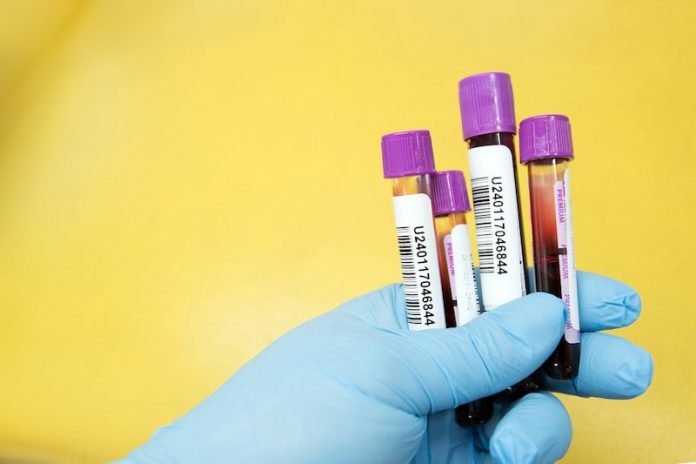
In a new study from the Queen Mary University of London, researchers found a blood test that can detect tiny amounts of circulating cancer DNA may identify the risk of cancer recurrence and guide precision treatment in bladder cancer following surgery.
They found that patients with bladder cancer who had a particular cancer DNA marker in their blood following surgery to remove their tumor had a higher likelihood of cancer relapse.
These patients could benefit from subsequent treatment with an immunotherapy called atezolizumab.
Globally, there were approximately 573,000 cases of and 212,000 deaths from bladder cancer in 2020. Surgery is often among the first treatments for advanced bladder cancer that has grown into the muscle layer of the bladder wall (muscle-invasive).
However, relapse rates after surgery are high as some cancer cells can be left behind when the tumor is removed.
These remaining cancer cells increase the chances of a patient’s cancer reoccurring as the cells can spread and establish tumors elsewhere in the body.
In the study, the study examined 581 bladder cancer patients. They tested whether the drug atezolizumab could reduce cancer recurrence in these people.
A blood test was used to detect the presence or absence of circulating tumor DNA (ctDNA) – tumor-derived fragments of genetic material that can escape into the bloodstream and are considered to be signs of remaining cancer.
The team found that patients with ctDNA-positive blood tests after surgery were at a higher risk of cancer recurrence than those who were ctDNA-negative.
Treatment with atezolizumab did not strongly improve disease-free survival. The outcomes in patients who were ctDNA-negative did not appear to differ whether they received atezolizumab or not.
These findings demonstrate ctDNA as a marker for residual disease and response to atezolizumab.
We also found ctDNA measurement to be more accurate than traditional radiology at identifying disease relapse.
These findings may change the understanding of post-surgical cancer care and, if validated in this setting as well as across tumor types, they may also change clinical practice.
If you care about cancer, please read studies about this stuff in mouth can trigger oral cancer and findings of meat and cheeses directly linked to higher cancer risk.
For more information about cancer and your health, please see recent studies about common blood pressure drugs may increase breast cancer death risk and results showing that new blood test can help identify more than 50 types of cancer.
The study is published in Nature. One author of the study is Professor Tom Powles.
Copyright © 2021 Knowridge Science Report. All rights reserved.




